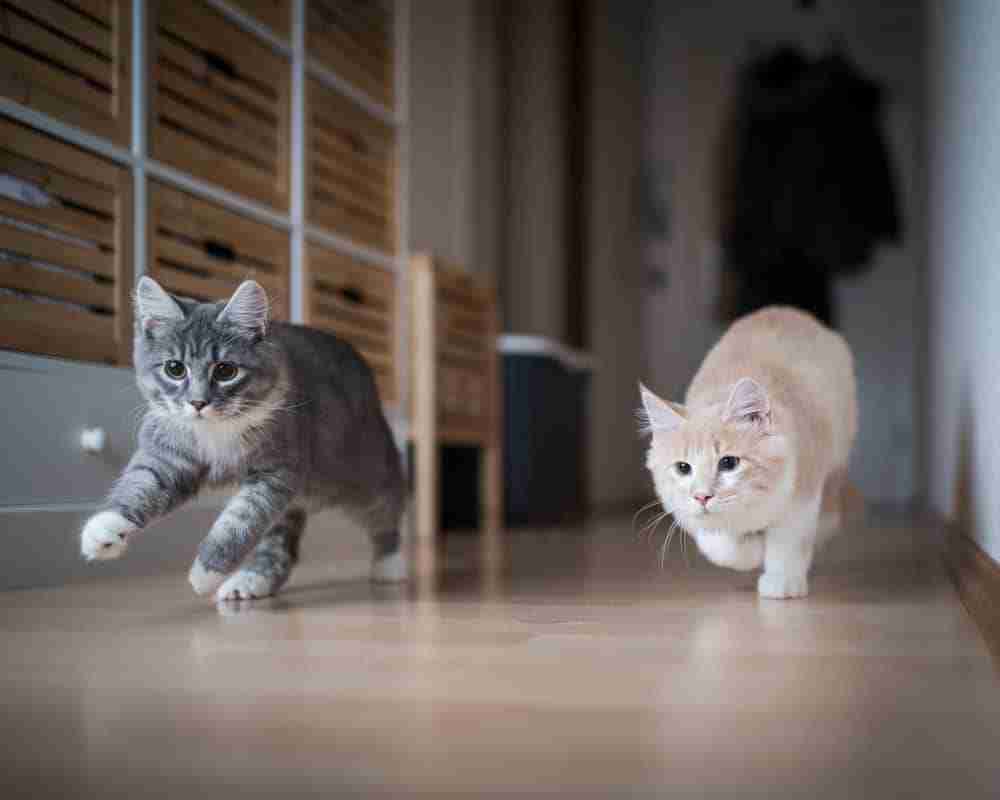Why do cats pant when playing? Because they have stressed their body with physical exertion beyond the normal levels and need to increase their respiration rate to oxygenate their blood and feed their muscles to allow increased activity to go ahead. Exactly the same as when you do exercise and end up breathing more heavily than normal.
Do Cats Get Out Of Breath When Playing?
This is a loaded question. At the end of the day, it all depends on how intense the play period is. If your cat is simply batting a feather around and making the odd jump they probably won’t get out of breath and need to pant. They are, after all, supreme athletes.
If on the other hand, you can play with your cat to the level that it becomes incredibly focused and locked on to the play then they will get out of breath when playing. A good example might be if you have a laser pointer. Your cat is quite likely to chase the dot relentlessly. This type of exertion will lead to your cat getting out of breath if the activity is kept up for any sustained period of time.
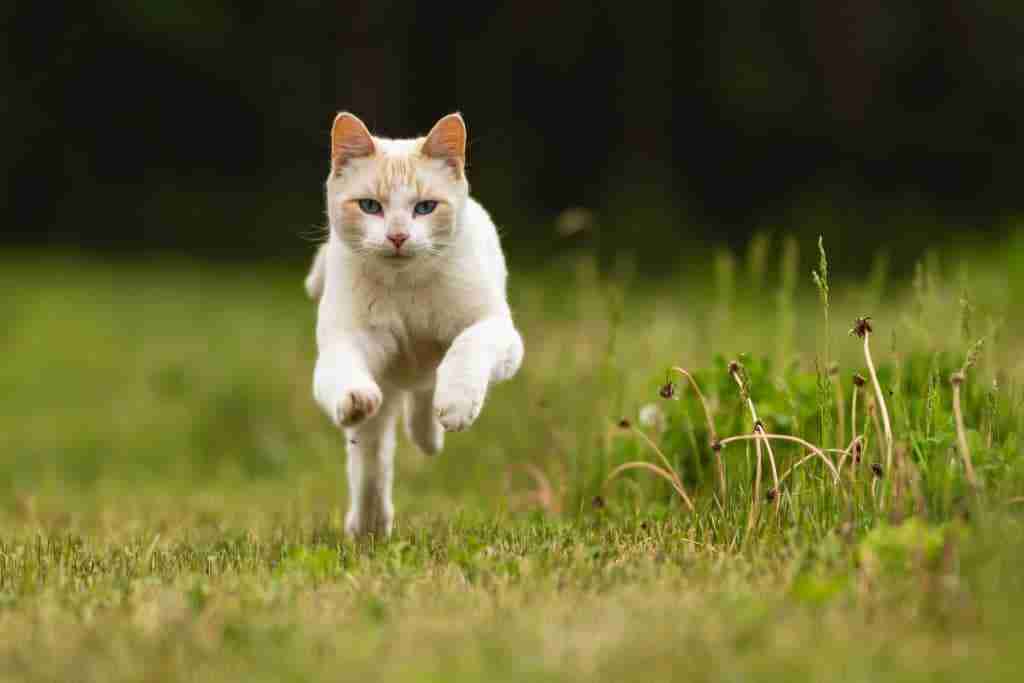
Is It Normal For A Cat To Pant When Playing?
Is it normal for a cat to pant when playing? If the play is absolutely engrossing and involves lots of physical work then it will be normal for your cat to breathe with an open mouth when playing. My cat even gets to the point where she has to stop and rest, such is the exertion she is willing to put into some sessions!
If your cat is operating at a level that is half-hearted or uncommitted it won’t get to the level of exertion where they are breathing heavily. A cat that isn’t moving across a lot of space during play does not seem to pant much because they haven’t really exerted itself enough.
My cat chasing a feather on a dangling toy won’t get out of breath and pant. My cat practice pouncing on a toy being drawn around a corner will not get out of breath. My cat watching a laser pointer dot on a wall and jumping will not get out of breath. My cat sprinting after a laser pointer dot on the floor – equals panting.
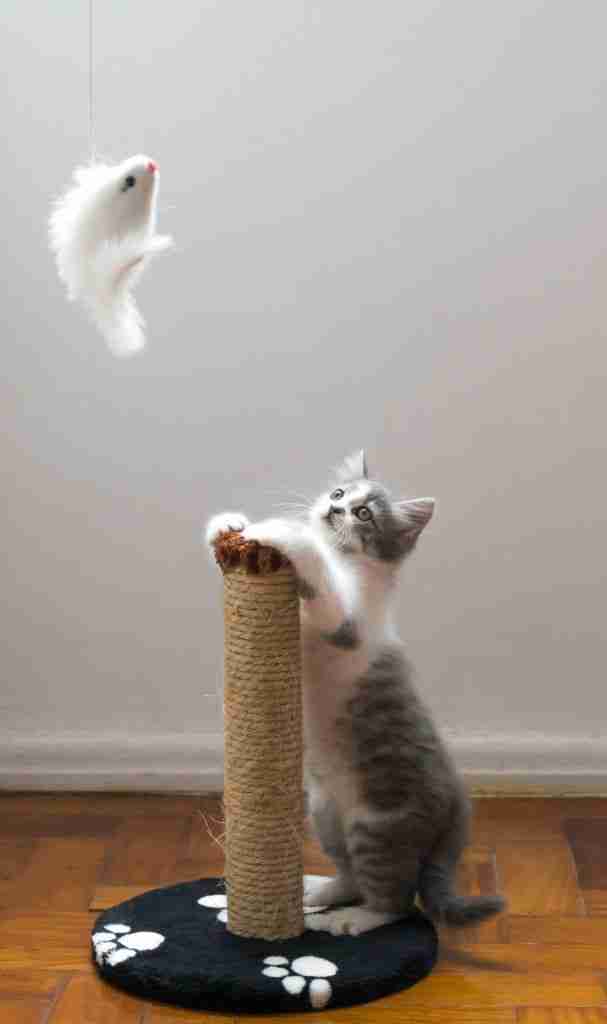
What Does Cat Panting Look Like?
What does it look like? It is simply heavy breathing with great intakes and expulsions of lungfuls of air. In a cat, your cat will probably have an open mouth with a tongue sticking out on show. This is an effort to maximize the opening of the airway.
Cats normally have a respiration rate of about 15-30 breaths a minute depending on how hard they are working. Expect to see a breathing rate at the high end during panting.
They will probably be in a sitting pose and you will see larger than normal movements of the rib cage. This deep breathing activity may last for a short period of time – think a minute or two. It will not go on for many minutes.
Once the heavy playing activity has ceased the respiration rate will subside as the activated muscles relax and place less demand on the heart and lungs for oxygenated blood.
Once your cat is recovered the mouth will close, the tongue will be retracted, the breathing will become more shallow and slower and your cat will go about its normal business in the usual manner.
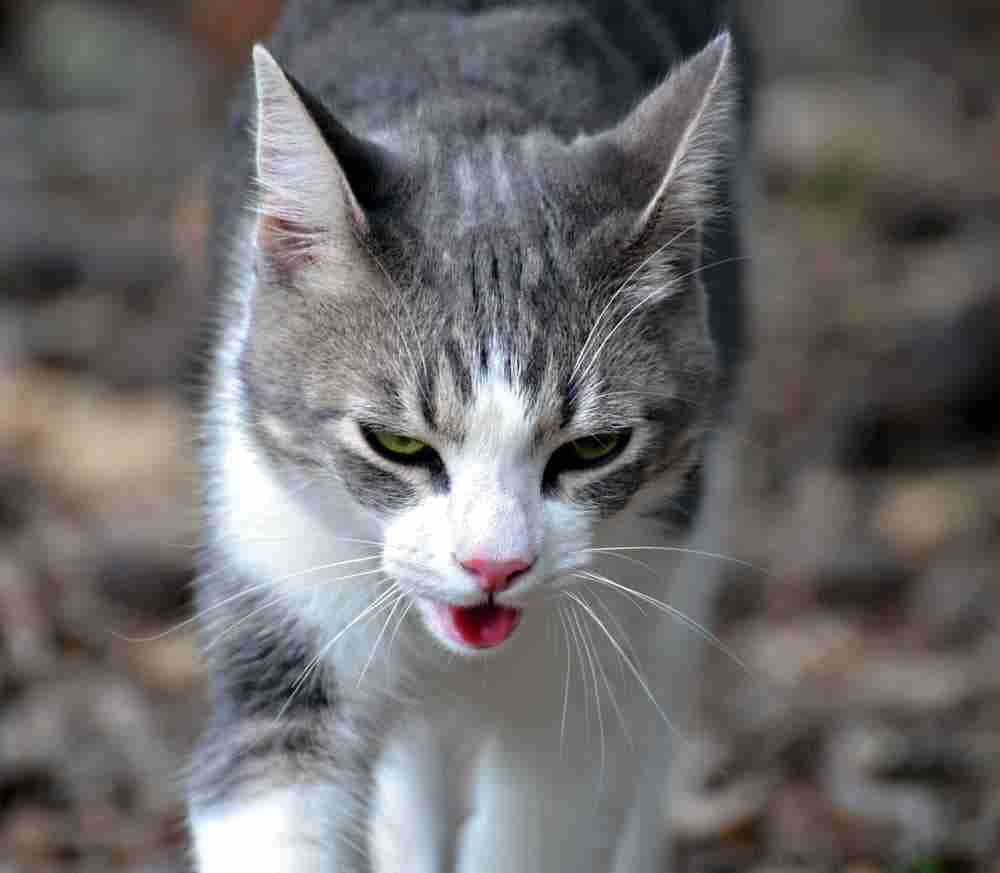
When Should I Be Concerned?
You should be concerned if your cat pants when under minimal strain. You should be concerned if your cat is open-mouth breathing having barely mustered up much of a workout. You should be concerned if your cat breathes heavily for a long period after the exercise is finished.
Your cat walking around mouth open and tongue out is not necessarily panting and may be due to dental issues. It is mouth open and tongue out accompanied by heavy, deep breathing as indicated by the rib cage movement that you should be aware of when judging the situation.
Do Cats Pant At Any Other Time?
Cats will be gasping and breathing heavily in different scenarios.
If they are overheating on a hot day, in a hot room, or in a hot car on a journey they will breathe heavily to try to cool down. They will exhibit other symptoms of overheating such as sweaty paw pads, looking for water, looking for shade, or looking to stretch out on a cool surface.
With overheating it is easy for a cat to develop heat stroke and exhaustion so keep an eye out for signs of problems like drooling, lethargy, nausea, increased vocalization, and stumbling. These can indicate that your cat is in trouble potentially suffering from heatstroke or exhaustion.
Cats will also pant when stressed or anxious. Fear and anxiety can lead to cats breathing quickly but shallowly – have you ever noticed this when your cat visits a vet? Ingestion of toxins – eating toxic house plants or poisoned rodents, etc brings on physical stress that can lead to panting, drooling, nausea, and other symptoms associated with poisoning.
When a cat experiences pain it may exhibit heavy breathing or rapid shallow breathing as a result of that pain. It will probably also show other symptoms such as going off food, hiding, over vocalization, and excessive grooming in areas.
Other non-exercise-related panting might be due to underlying medical conditions. Heartworm can cause panting in cats. Heart and lung issues may also lead to panting. Even obesity may lead to panting issues…
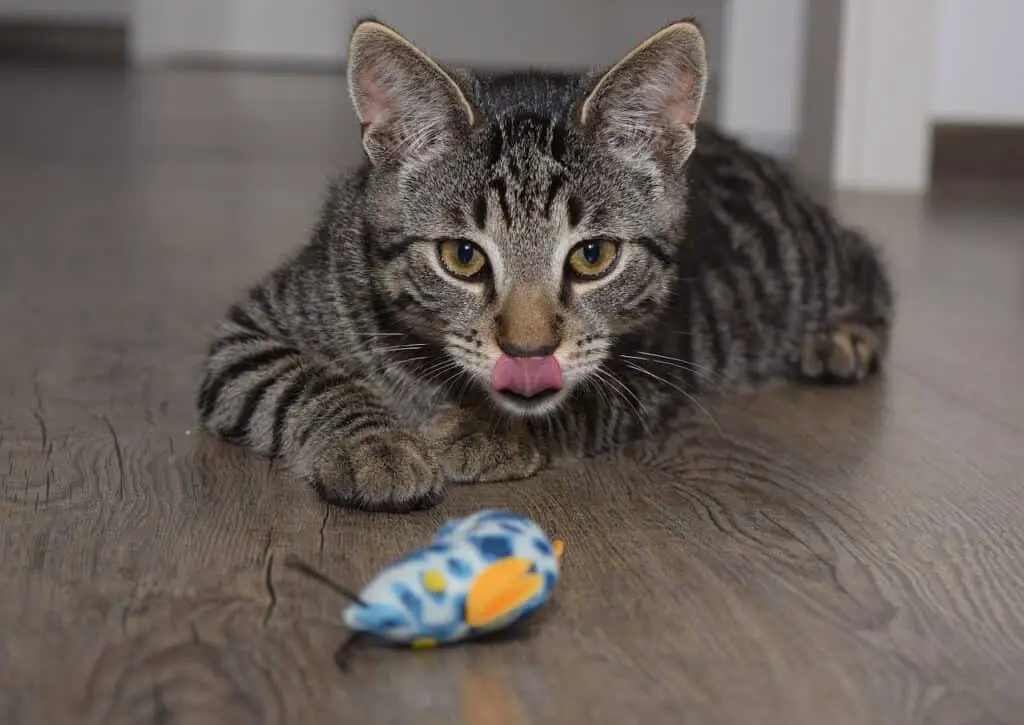
How Can I Calm My Cat From Panting?
Simply let your cat rest and take a drink of water if necessary. Your cat should respond quite quickly and be back to normal in a few minutes.
If your cat just seems to go on panting for way too long or seems stressed and uncomfortable beyond normal having completed a play session then a vet visit for a check-up may be in order.
If your cat is demonstrating panting without having been overexerted from play then look to cool your cat off if possible by providing some water-containing ice cubes, giving them access to a shaded and cool spot in the home. If you suspect other issues because maybe your cat’s paw pads are not too hot then it may be time to suspect poisoning and arrange an emergency visit to a vet – even chewing on a houseplant in the home can poison a cat!
